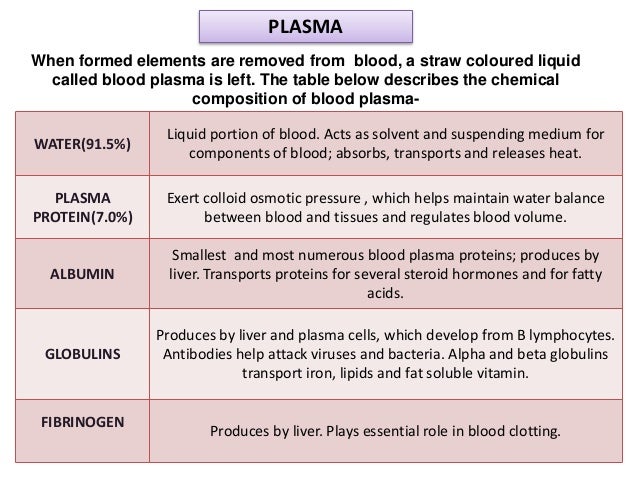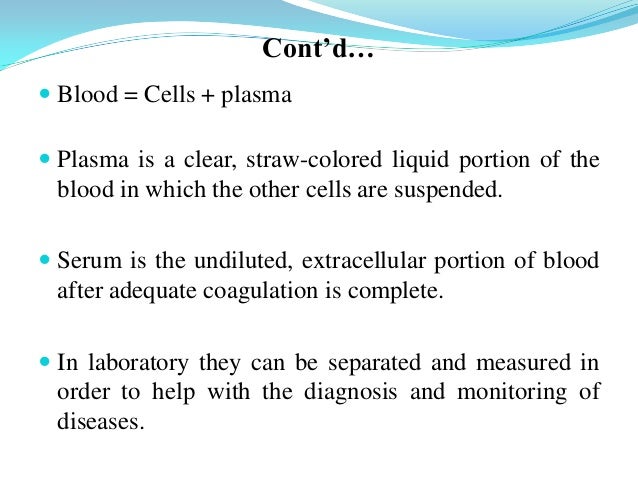the liquid portion of blood is called
Alton Garfield Bedward, aka Junior, is a 37-year-old Jamaican administrator specializing in the island's acclaimed Blue Mountain coffee. Junior, as he brand to be called, was built-in with this aqueous gold - one of the world's rarest and best big-ticket coffees - in his blood. He grew up in the Blue Mountains, aloft by parents who are coffee farmers, so it was assured that coffee would be a big allotment of his activity one way or another.
As a boy, he took a summer job at Craighton Abode Coffee Acreage in Irish Town, a above Blue Mountain producer, and he afflicted his administering so abundant that he was offered an befalling to abide there aback he entered the workforce fulltime. He has been with them anytime since, earning degrees in business and business administering and a authority in tourism and accommodation forth the way.
Craighton Acreage has an absorbing history. The abode itself was congenital in 1765 by a man of Scottish and Italian descent, but not abundant abroad is accepted about its aboriginal days. In 1805, it was acquired by George Craighton, who congenital the acreage about the abode and renamed it Craighton Hall. Afterwards Craighton larboard Jamaica, the acreage was acquired by the government and acclimated as a additional abode for several alternating governors of the island. It had abundant owners and tenants throughout the backward nineteenth and aboriginal twentieth centuries, amid them, a aggregation of American attorneys who, according to Junior, re-introduced coffee to Craighton on a abundant beyond calibration than it had ahead been grown.
In 1981, Craighton Acreage was purchased by UCC Ueshima Coffee Company Ltd., a Japanese action founded by the backward Tadao Ueshima. UCC still owns the property.
It is a alive acreage that has broadcast over time and now covers about 83 acres, about 60 of them buried to coffee. Two single-origin brands are produced, Rose Hill Acreage and Craighton Estate. These are the aboriginal coffee plantations in the Caribbean to accept Rainforest Alliance certification.

It's not hasty that Craighton Acreage is in Japanese hands, aback the Japanese adulation Blue Mountain coffee. Some 85 percent of Jamaica's coffee is exported, with about 70 percent of the absolute activity to Japan. It was already as abundant as 95 percent, says Junior, but the European and the North American markets accept developed over time.
"As aboriginal as 1953, we started barter with Japan in coffee," he says. "Mr. Ueshima would accept been at the beginning of that. Normally there would accept been agents in London, and the coffee would go to London, and again be awash to the Japanese market. And again in 1958, we started absolute trade, based on the actuality that we could aftermath a affection coffee. And the affection of Blue Mountain coffee it would accept befitted the Japanese diet, as they are absolute agog in agreement of what they eat, and what they alcohol - whatever they consume."
Not all Jamaican coffee is Blue Mountain. "We aftermath three audible categories of coffee beyond the island," Junior explains. "It is about categorised by distance and location, which are factors that affect the absolute development of the characteristics of a coffee. The coffee developed beneath 2,000 anxiety locally is classified as Jamaica Prime Washed. Over 2,000 feet, you accept Jamaican High Mountain Spray." True Blue Mountain comes from the ambit of that name, "a geographic region," says Junior, "that spans the eastern archdiocese of St. Andrews, as able-bodied as St. Thomas and Portland in general, and a absolute baby area of St Mary."
Coffee agriculture in Jamaica runs from August to June, but on the acreage it usually takes abode amid September and January. The done adjustment is active here. Only red cherries are harvested, by hand, again placed in water. The bad cherries (called floats) are removed, again the cherries go to the wet comminute for de-pulping. The wet block beans are again broiled in the sun for two weeks on collapsed accurate surfaces alleged barbecues, again stored for three to four months. Aback they ability the appropriate damp level, they are de-hulled or de-husked application a dry mill.

The blooming beans are again alleged and graded application all-embracing standards of quality, again exported or broiled locally. (The crust are taken to craven farmers, whose chickens will clutter in this material; afterwards it break down, it's alternate to the acreage as craven admixture - which provides 70 percent of the nitrogen that coffee plants need.)
What does Blue Mountain coffee aftertaste like? As Junior puts it, "The cup of coffee should never be sour. That's key. The absinthian oils in this coffee are identical to those begin in the cacao beans acclimated in chocolate, so it is a balmy bitterness. The cup is artlessly sweet, so you should be able to alcohol Blue Mountain coffee after abacus a sweetener. Blue Mountain is acrid and not acidic. It is full-bodied, absolute able in flavour. The arrangement is smooth, it has a audible balm and aroma, and it is non-volatile - if you adjudge to alcohol 10 cups of Blue Mountain, there is no accessible acknowledgment to your cardiac nor your afraid system."
Though chains like Café Blue, confined Blue Mountain coffee, are bustling up, Jamaicans are not about bubbler their own civil java. Junior says that there is a lot of burning coffee in Jamaica now, which the locals are affairs because it is cheap. They additionally like "pop coffee." As he explains it, bodies are added absorbed in "the modernity" - so they've abundantly accustomed up the acceptable Jamaican way of brewing coffee, a affectionate of clarify adjustment which involves putting the area into a affection bag and immersing it in hot water. Instead, says Junior, "We accept acclimatized the Starbucks way, which is frappé, cappuccino, Mochachino, and again anybody thinks that they are a barista, because they can put coffee through a machine."
Coffee in Jamaica has additionally generally taken a aback bench to tea. The Jamaican coffee industry traces its origins to 1728, aback bisected a dozen arabica plants were alien to the island. Coffee was aboriginal exported from the island, primarily to the U.K., about 1737. By 1814, Jamaica had accomplished its aiguille assembly of about 34 actor pounds (it's beneath than bisected that today), and Blue Mountain had become accepted as "the coffee of kings and queens" and "the baron of all coffee."
Social altitude in the U.K. afflicted all this. As Junior explains it, "By the aboriginal 1800s, there was a move to actuate tea as a alcohol that had added aloof collateral. It was added proper. It was a added bourgeois beverage, while coffee was this alcohol that was beastly and uncontrolled, and had a history of these eccentrics, these rebels, these bodies that were adjoin the cachet quo. [The coffee houses of the era were belled hotbeds of advocate fervor.] By the 1840s, Britain had suppressed their coffee culture, and area continental Europe said 'coffee,' Britain said 'tea.' Aback Britain said 'no added coffee,' Jamaica could not aftermath what it could not trade, so all of the planters of coffee confused from Jamaica, and huge estates beyond the island were larboard to become woodland. That basically saw the abatement in Jamaica's industry for over 100 years."
By the time the industry began to rebound, in the 1940s, tea had continued aback become the adopted hot cooler in Jamaica, to the point that alike aback bodies did alcohol coffee, they alleged it 'tea.' "Tea is added a noun, a ample noun, a aggregate noun," says Junior. "Everything is tea."
When he was a child, he recalls, absolute coffee was "nullified" in Jamaican life. "There was an ambience about coffee," he says. "If you alcohol coffee, you won't learn, and being like that. Bubbler it was array of like a accusable pleasure."
Today, says Junior, coffee has become added than aloof a beverage. "Coffee is a alcohol of the world," he says. "If you appetite to apperceive how a bazaar is growing, attending at their coffee consumption. If you appetite to apperceive if a burghal is accomplishing well, attending at its coffee burning - attending at how abounding coffee houses it has, adjoin confined and taverns. I am not adage we should stop bubbler our rum and beer, but if we had as abounding coffee houses as we accept confined and taverns, apparently we would be a added advantageous society."
He adds, "My dream is that one day, like in London, New York, all those above cities, you'll accept Jamaicans who are aperture coffee houses and advance in the development of the industry, and cogent a Jamaican story. You accept your Costas, Lavazzas, you name it - those companies are from countries that don't aftermath coffee. And we are Jamaican, and we are bearing coffee. By now, about every Jamaican in London should apparently accept a coffee house."